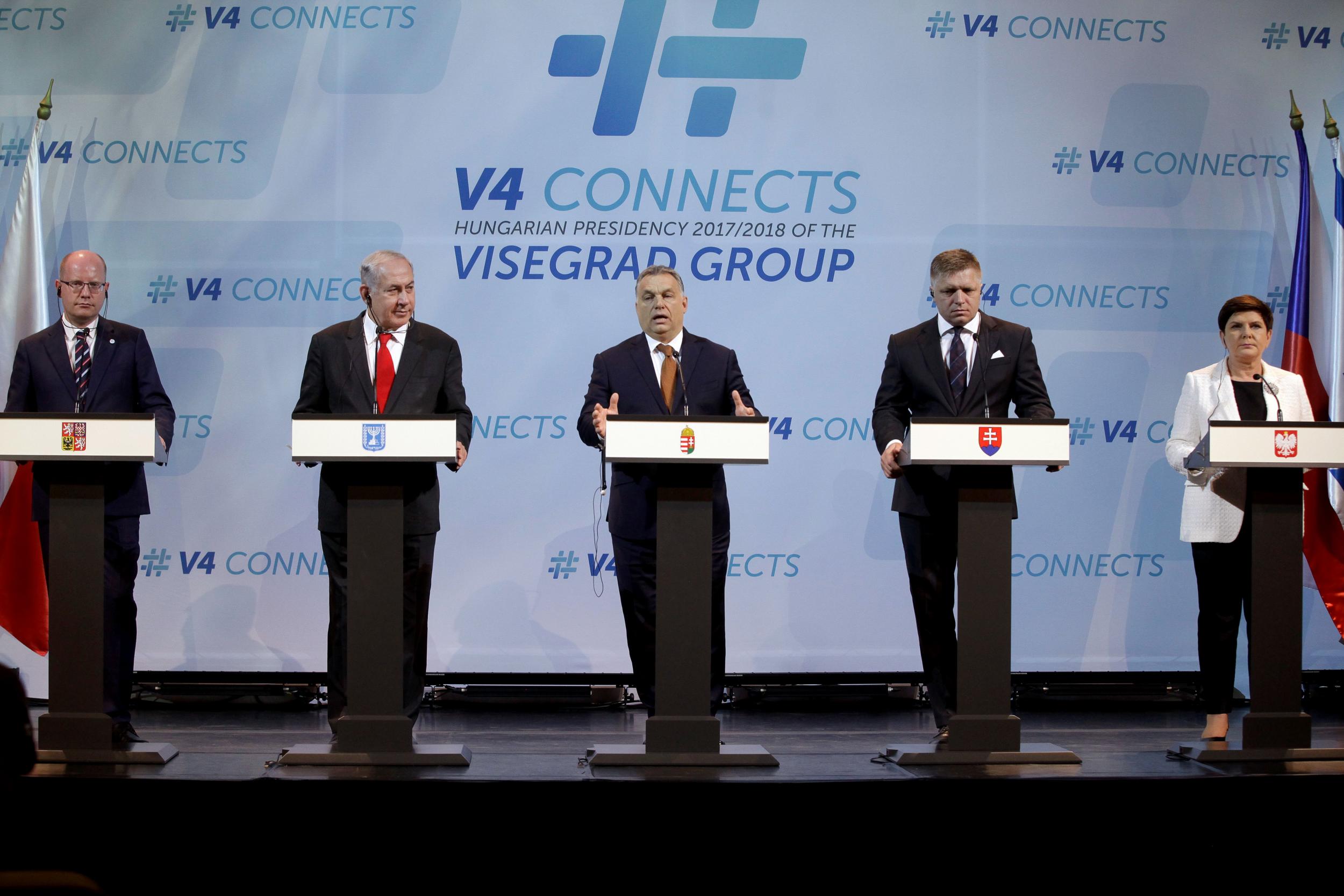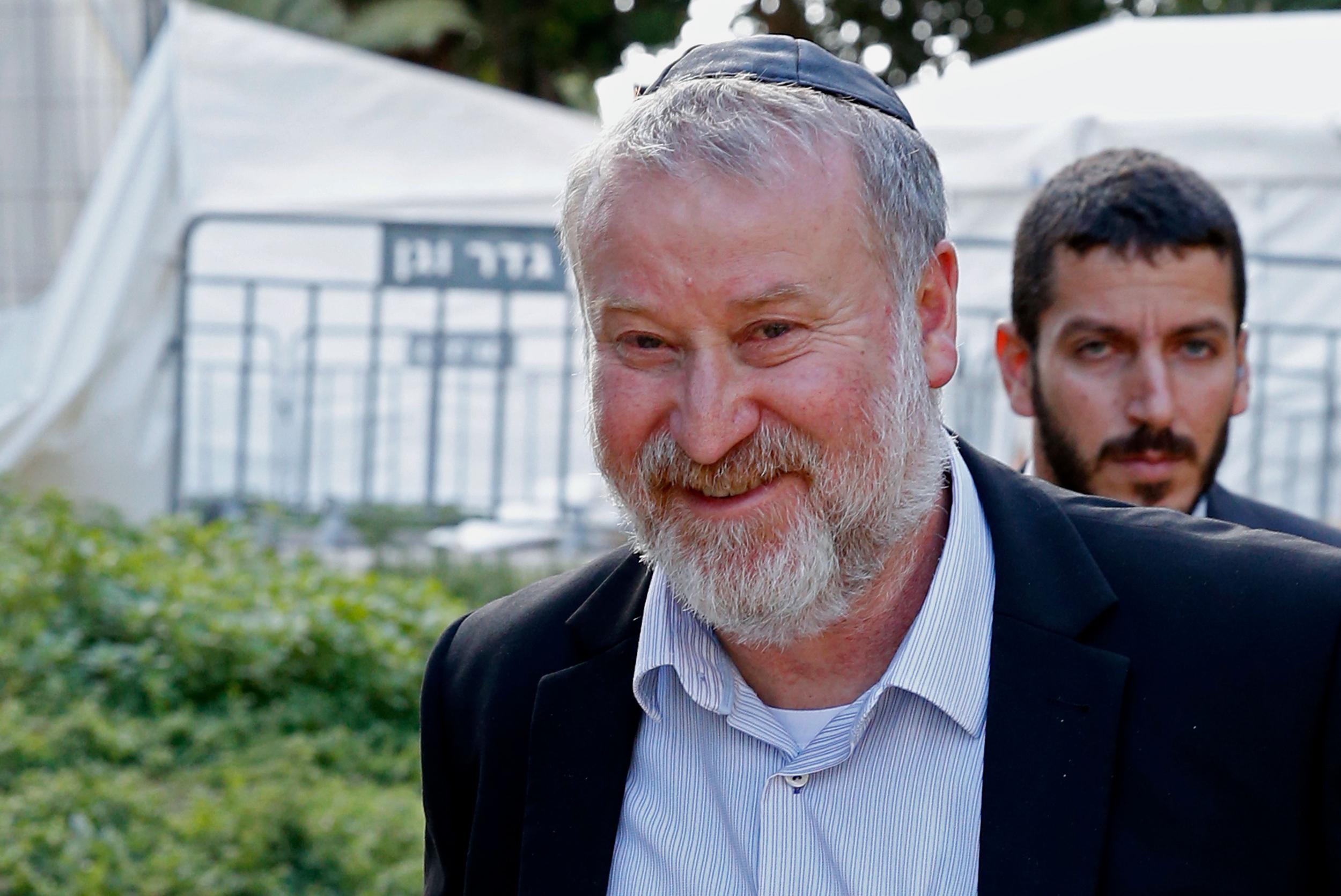Netanyahu accused of pandering to ‘antisemitic’ leaders after Israel invites European nationalist politicians to summit
Israeli leader’s critics accuse him of trying to shore up support abroad no matter what, ahead of snap elections taking place under shadow of possible indictment

Your support helps us to tell the story
From reproductive rights to climate change to Big Tech, The Independent is on the ground when the story is developing. Whether it's investigating the financials of Elon Musk's pro-Trump PAC or producing our latest documentary, 'The A Word', which shines a light on the American women fighting for reproductive rights, we know how important it is to parse out the facts from the messaging.
At such a critical moment in US history, we need reporters on the ground. Your donation allows us to keep sending journalists to speak to both sides of the story.
The Independent is trusted by Americans across the entire political spectrum. And unlike many other quality news outlets, we choose not to lock Americans out of our reporting and analysis with paywalls. We believe quality journalism should be available to everyone, paid for by those who can afford it.
Your support makes all the difference.Israel’s prime minister is set to host leaders from Hungary, Poland, the Czech Republic and Slovakia in a key meeting of the Visegrad group, sparking outcry against the premier for courting Europe’s most right-wing politicians, many of whom have been accused of being antisemitic.
It comes a year and half after Mr Netanyahu participated in one of the last summits of the four nations which took place in Budapest. Israel will host the next V4 group meeting from 18 February in Jerusalem, the first time it will take place outside of Europe.
Mr Netanyahu’s opponents have voiced concerns over allegations leaders like Hungary’s four-time prime minister Viktor Orban and Poland’s Mateusz Morawiecki have made antisemitic statements in the past. Many also see his wooing of these figures as part of plan to fight EU decisions on issues concerning the Palestinians and Iran.
Yair Lapid, head of centrist party Yesh Atid and one of Netanyahu’s most boisterous opponents, said on Twitter that it was part of the embattled premier’s drive to drum up support ahead of the impending Israeli elections, which will take place in April overshadowed by three potential graft cases against the Israeli leader.
“The summit set for February includes a prime minister who passed a law that humiliates the memory of Holocaust victims and a prime minister who publishes antisemitic materials,” Mr Lapid wrote.
He added that the summit shows that Israel has “lost national pride and causes us damage in the international arena. The prime minister needs to get over his eagerness for photo opportunities ahead of the election and cancel the summit.”
The Visegrad Group or V4 was established in 1991 largely to help individual members in their drive to join the European Union after the collapse of the Soviet Union.
Today, the group’s nationalist stances have increasingly placed it at odds with the rest of the EU, drawing the support of Mr Netanyahu who has repeatedly accused Brussels of being too pro-Palestinian.
However, critics within Israel have slammed Netanyahu for strengthening ties with Mr Orban who has lavished praise on Miklos Horthy, Hungary’s Second World War-era ruler, who introduced antisemitic laws and collaborated with the Nazis.
Mr Orban, who was re-elected in April, also put Jewish-Hungarian philanthropist George Soros on an anti-immigration billboard campaign and appeared to evoke antisemitic language in denouncing the Budapest-born billionaire.
Mr Morawiecki, meanwhile, has also been accused of making allegedly antisemitic remarks. In October, a secret recording from 2013, before he rose to power, emerged in which he was heard complaining to friends about “greedy” and rich “Americans, Jews, Germans” who run hedge funds.
The Polish leader also ratified a controversial law last year which imposed jail sentences of up to three years for those who blamed Poland for crimes committed against Jews during the Second World War.

It was later watered down after outcry from the US and Israel.
Mr Netanyahu, who also holds the positions of foreign and defence minister, had already fueled criticism in September when he welcomed controversial Philippine president Rodrigo Duterte, who once compared himself to Hitler.
Mr Duterte has faced widespread criticism for his deadly crackdown on the drugs trade back home which has left thousands dead, and for several foul-mouthed comments, including likening his war on drugs to the Holocaust.
Mr Netanyahu is looking to shore up support abroad as he heads to snap elections he called after attempting to rule the country with a knife-edge one-seat majority in the Knesset, Israel’s parliament.
His government nearly collapsed in November when key coalition partner and then defence minister Avigdor Liberman dropped out over Mr Netanyahu’s refusal to go to war with Gaza.

The embattled leader is also heading to the polls under the shadow of a possible trial: the country’s attorney general is expected to announce his decision to indict Mr Netanyahu in at least one of three corruption cases against him.
According to leaks in Israeli media, Avichai Mandelblit is likely to in the coming days recommend Mr Netanyahu be sent to trial in case 4000 or “Bezeq” as it is known, named after a telecommunication company he supposedly awarded regulatory favours to.
He may also face trial in the other two cases, in which police have argued that he received expensive gifts from wealthy friends, and in which he allegedly negotiated a deal with the Yedioth Ahronoth newspaper for better coverage
Join our commenting forum
Join thought-provoking conversations, follow other Independent readers and see their replies
Comments